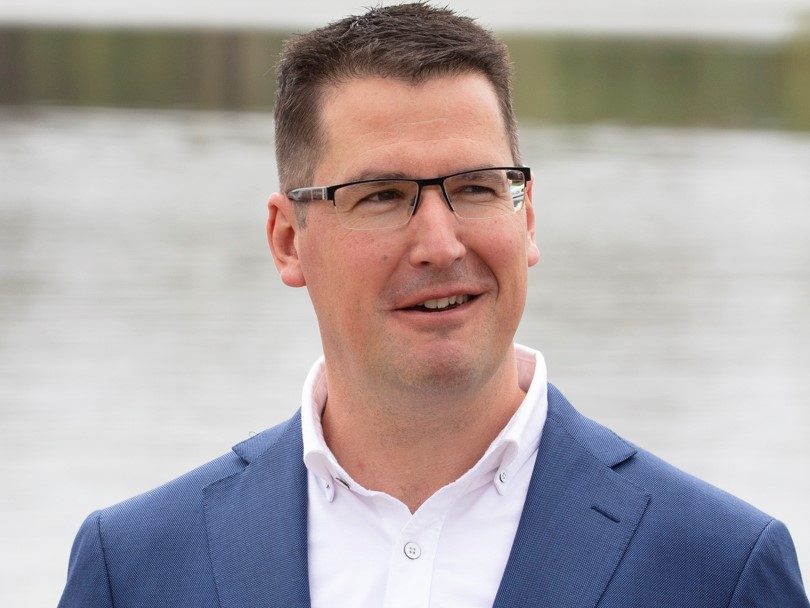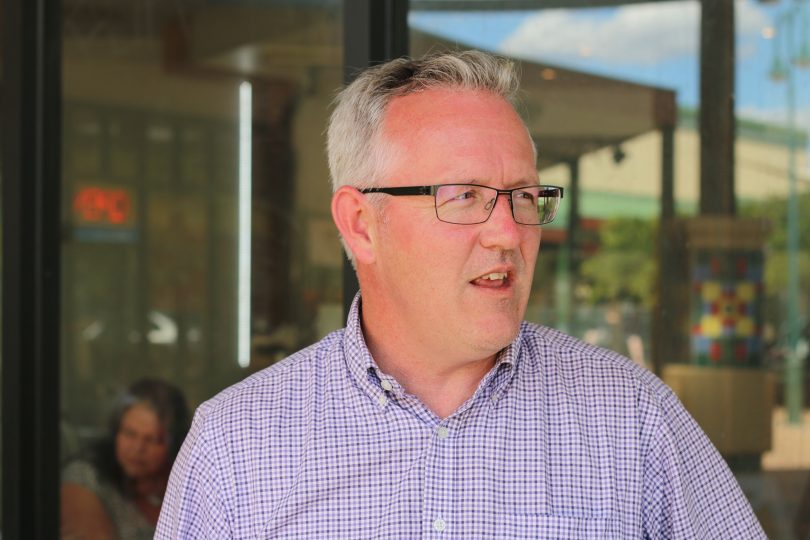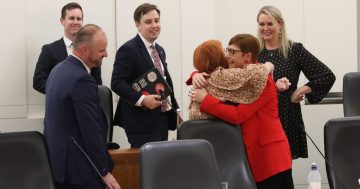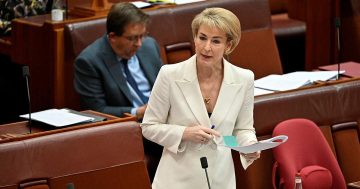
ACT Liberal Senator Zed Seselja: prepared to limit ACT political rights in a bid to stop voluntary euthanasia. Photo: File.
Let’s be clear from the start: repealing federal legislation to allow the ACT to legislate on voluntary assisted dying is not really about the contentious issue at all.
Voluntary assisted dying may be associated with the renewed arguments over the Euthanasia Laws Act 1997 (aka, the Andrews bill), which specifically targeted attempts by the then Legislative Assembly to pass laws, but the crux of the matter is the limitation placed on territory governments and the subsequent devaluing of ACT residents’ democratic rights compared with their state counterparts.
Both camps on either side of the euthanasia or voluntary assisted dying debate should remember that this is the central point, not what the eventual outcome of a debate about euthanasia decides.
ACT Liberal Senator Zed Seselja makes no secret of his opposition to voluntary assisted dying. Being a politician from the whatever-it-takes school, he had no qualms about twisting the arm of NT Senator Sam McMahon so she did not include the ACT in her proposed territory rights bill.
When called out for his intervention, the Senator hit back by claiming the ACT’s radical legislature would produce the country’s most extreme voluntary euthanasia laws. He said it could not be trusted to act responsibly on such a serious issue.
Referring to the Assembly’s ‘unchecked power’, he argued that without a house of review, the Barr Government already had form with its alleged refusal to crack down on bikie gangs, mismanagement of the health system and consideration of the decriminalisation of drugs such as ‘ice’.
The Senator’s mash-up may be justifiable in his mind, but it betrays a lack of faith in the democratic system he purports to uphold, his fellow Canberrans and deliberately conflates the issues so that the question of ACT rights may be lost in the sound and fury.
The exceptionalism he argues for the ACT is not based on the jurisdiction’s status as a territory, and therefore extendable to other issues, but on a single issue about which he has firm convictions.
The Senator’s views on voluntary euthanasia are to be respected, which is why in this matter, a conscience vote is the preferred path in legislatures to date.
You never know, he may have more friends than he realises.

Federal Member for Bean David Smith backs change despite opposing voluntary euthanasia. Photo: File.
On the other side, advocates for repealing Andrews roll out the distressing stories about the long, painful and undignified deaths of friends and relatives.
It is impossible not to be moved by these, but these should be part of the community conversation and eventual debate by our elected representatives not produced in arguments about whether a specific law that erodes the ACT’s political franchise should stand.
The ACT’s Labor MPs have vowed to lobby for the repeal of the Andrews bill to become part of the Federal Labor platform, but it’s a sign of the thorniness of the issue that they even have to push for it.
At least the Member for Bean, David Smith, has separated his opposition to voluntary euthanasia from his duty to support his constituents having the same political rights as those in the states.
The Canberra Liberals’ support for the federal limitation on the Assembly to be overturned shows the waning influence of the ‘Seselja Right’ in the ACT and reflects the view that the Territory, after more than three decades of self-government, is capable of making up its own mind.
For the Barr Government, presenting a united front to the Commonwealth must be pleasing, and it will continue to press for change.
That remains the priority, and with no legislation planned, it says nothing would be rammed through the Assembly in the way Senator Seselja suggests.
It’s worth remembering that even if the Andrews bill is repealed, the Commonwealth still has power under the Constitution to intervene in the affairs of territories if it so chooses.
Not to mention that a territory, soon to have a population of half a million, comparable to Tasmania, only sends two Senators to the Hill.
These are matters for future debate but tidying up the Andrews aberration is long overdue.
As Winston Churchill said, more or less, democracy isn’t perfect, but it’s better than the alternatives.
Let the chips fall where they may, but at least let’s have the right to have the debate.





















